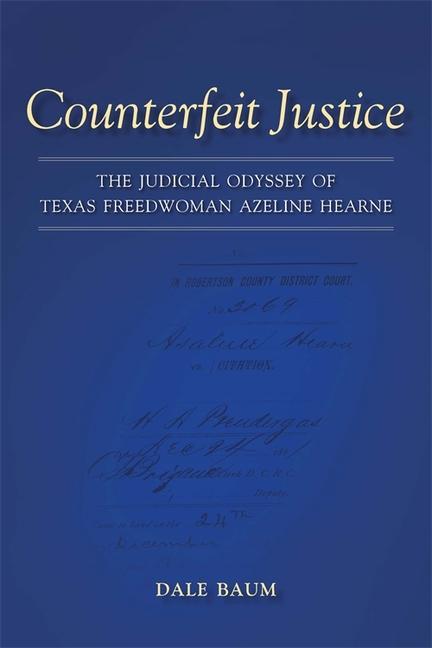For many of the forty years of her life as a slave, Azeline Hearne cohabitated with her wealthy, unmarried master, Samuel R. Hearne. She bore him four children, only one of whom survived past early childhood. When Sam died shortly after the Civil War ended, he publicly acknowledged his relationship with Azeline and bequeathed his entire estate to their twenty-year-old mulatto son, with the provision that he take care of his mother. When their son died early in 1868, Azeline inherited one of the most profitable cotton plantations in Texas and became one of the wealthiest ex-slaves in the former Confederacy. In Counterfeit Justice, Dale Baum traces Azelines remarkable story, detailing her ongoing legal battles to claim and maintain her legacy. Due to gaps in the available historical record and the unreliability of secondary accounts based on local Reconstruction folklore, many of the details of Azelines story are lost to history. But Baum grounds his speculation about her life in recent scholarship on the Reconstruction era, and he puts his findings in context in the history of Robertson County. Although history has not credited Azeline Hearne with influencing the course of the law, the story of her uniquely difficult position after the Civil War gives an unprecedented view of the era, and of one solitary womans attempt to negotiate its social and legal complexities in her struggle to find justice.


































